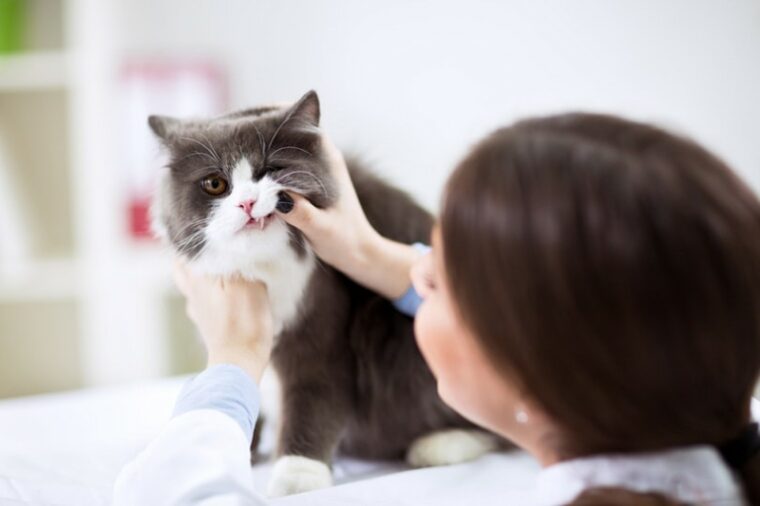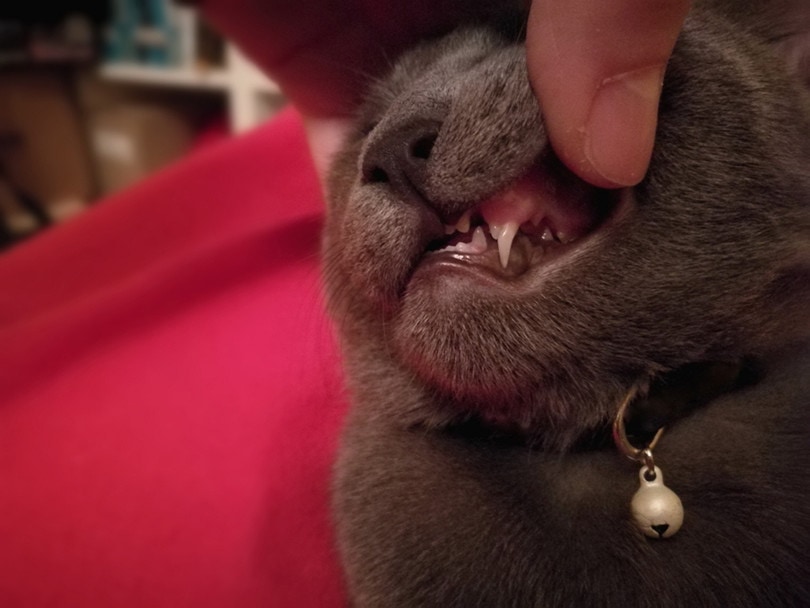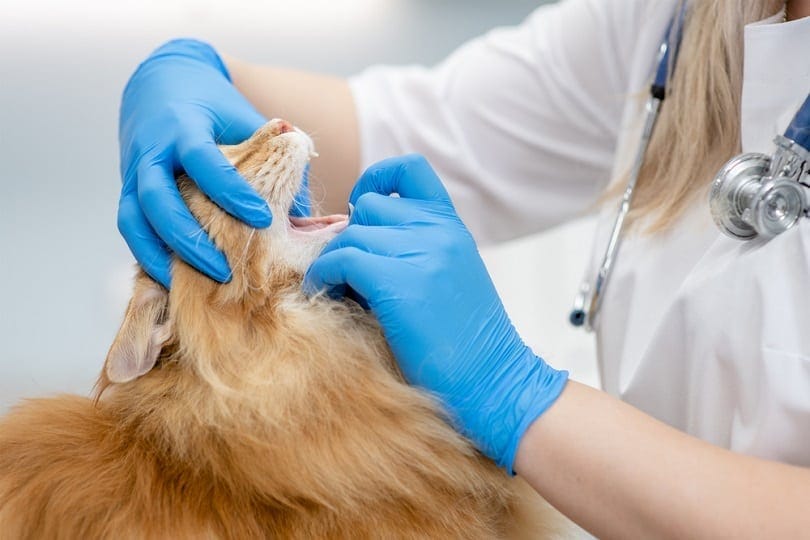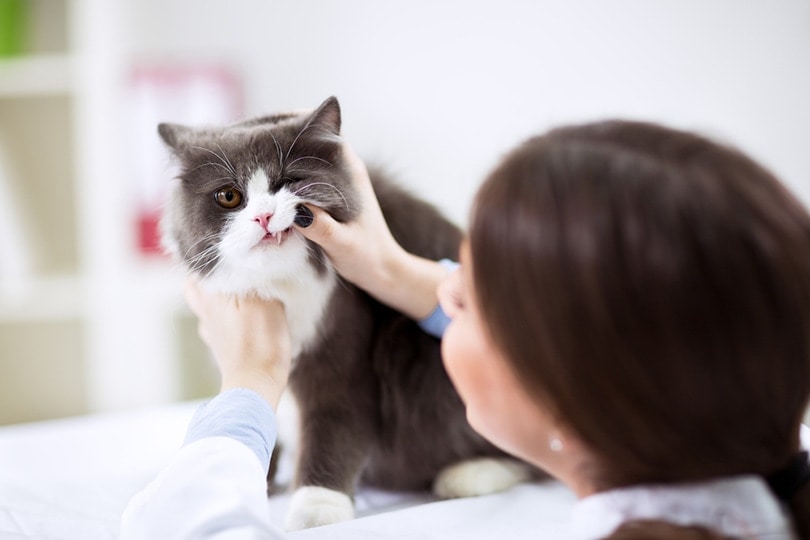
Many cats may require tooth removal at some point in their lives, no matter how good you are about brushing their teeth and providing routine dental care. Removing dead, rotten, or loose teeth can help prevent pain and life-threatening infections from plaguing your cat, so it’s often a necessary procedure to maintain your cat’s health.
To help you plan, here’s what to expect with having some of a cat’s teeth removed. Cat tooth removal can cost anywhere from $200 to $700.
 The Importance of Feline Dental Health
The Importance of Feline Dental Health
Maintaining your cat’s dental health is important for their mouth, obviously, but it also carries a variety of health benefits. Stinky breath is unpleasant, but diseases like gingivitis and stomatitis can be painful for your cat, leading to a decrease in food intake. It can also lead to infections in the mouth, like abscesses, which can cause pain and significant swelling in the face.
Poor dental health in cats can also lead to bacteria entering the rest of the body via the mouth. When this happens, it can lead to serious medical problems, like kidney, liver, and heart disease, as well as a blood infection known as “sepsis” in severe cases.
Having infected or damaged teeth pulled can save your cat a lot of pain and reduce the risk of more serious problems developing.

How Much Do Professional Cat Tooth Removals Cost?
The price of having your cat’s teeth pulled can vary significantly based on a variety of factors. Your cat’s baseline dental health will have an impact. This means that a cat that has a healthy mouth with a broken tooth may cost much less to have the tooth pulled than a cat with severe dental disease needing a tooth pulled.
The number of teeth being pulled will also impact the cost, as the tooth being pulled. Teeth like molars can be very difficult to remove, especially if the gums are healthy, so this procedure may cost more than it would to remove a small incisor.
The area you live in will be a major determining factor in how much it will cost you to have a tooth, or multiple teeth pulled for your cat. For example, having a tooth pulled in Southern California is likely to cost you significantly more than it might in Missouri.
| Tooth Pulling Procedure | West Coast | Midwest | East Coast |
| Dental with Extraction | $450+ | $200–$750 | $700+ |
Additional Costs to Anticipate
Most cats won’t just have a tooth extraction performed during their visit. Your vet will guide you in what is necessary for your cat, but it is often required to perform pre-op bloodwork to ensure your cat is healthy enough for anesthesia. You should also consider potential separate charges for anesthesia, IV access, IV fluids, and any medications your cat needs to go home with for pain or infection prevention.
Oftentimes, dental X-rays are necessary when pulling teeth. This is especially true if your cat has multiple teeth that need to be pulled. Dental X-rays can only be performed under anesthesia and may add $100 or more to your total cost. Dental x-rays help your vet see the underlying health status of the teeth and jaw.

How Often Should I Have My Cat’s Teeth Looked At?
Your cat should see the vet every year, and at this visit, your cat’s vet should thoroughly examine your cat’s teeth. For fractious cats, this can be difficult, and sedation may be required. An annual exam of your cat’s teeth will help keep you and your vet up to date on what’s going on with your cat’s dental health.
Your cat’s vet will be able to guide you on whether your cat needs a dental cleaning. Most cats begin needing professional dental cleanings once they reach a few years of age. These cleanings should be repeated annually or as needed to maintain dental health.
Does Pet Insurance Cover Cat Tooth Removals?
Pet insurance typically will cover tooth extractions, luckily. The exception is if your cat has some form of dental disease or tooth damage as a pre-existing condition when you set up the pet insurance policy. Otherwise, you should expect your pet insurance company to help you cover the cost of the visit based on the percentage of reimbursement laid out in your policy.

What to Do for Your Cat’s Teeth in Between Cleanings
If possible, begin working with your cat on at-home teeth brushing. Many cats may be resistant to this procedure, but with patience, training, and positive reinforcement, your cat may be able to be trained to tolerate it.
Dental chews and toys can be beneficial for at-home dental care, as can dry cat food. Dry cat food can help physically scrape light buildup from the teeth, keeping them cleaner at home. If your cat has severe dental problems, your vet may recommend a prescription dental diet that will work to help keep the teeth clean between veterinary dental cleanings.
 Conclusion
Conclusion
Keeping your cat’s teeth clean is something that many people don’t think about, but finding ways to work with your cat to keep their teeth clean at home can help prevent dental diseases, abscesses, and other serious conditions from occurring. Have your cat’s vet check their teeth annually to determine when they are due for a cleaning and inspect the teeth for breaks, looseness, gum recession, and gum irritation. Talk to your vet about ways you can maintain your cat’s dental health at home as well, which has the potential to decrease the frequency with which your cat needs professional dental care and, hopefully, will prevent a need for tooth extractions.
See also:
Featured Image Credit: didesign021, Shutterstock

 The Importance of Feline Dental Health
The Importance of Feline Dental Health



